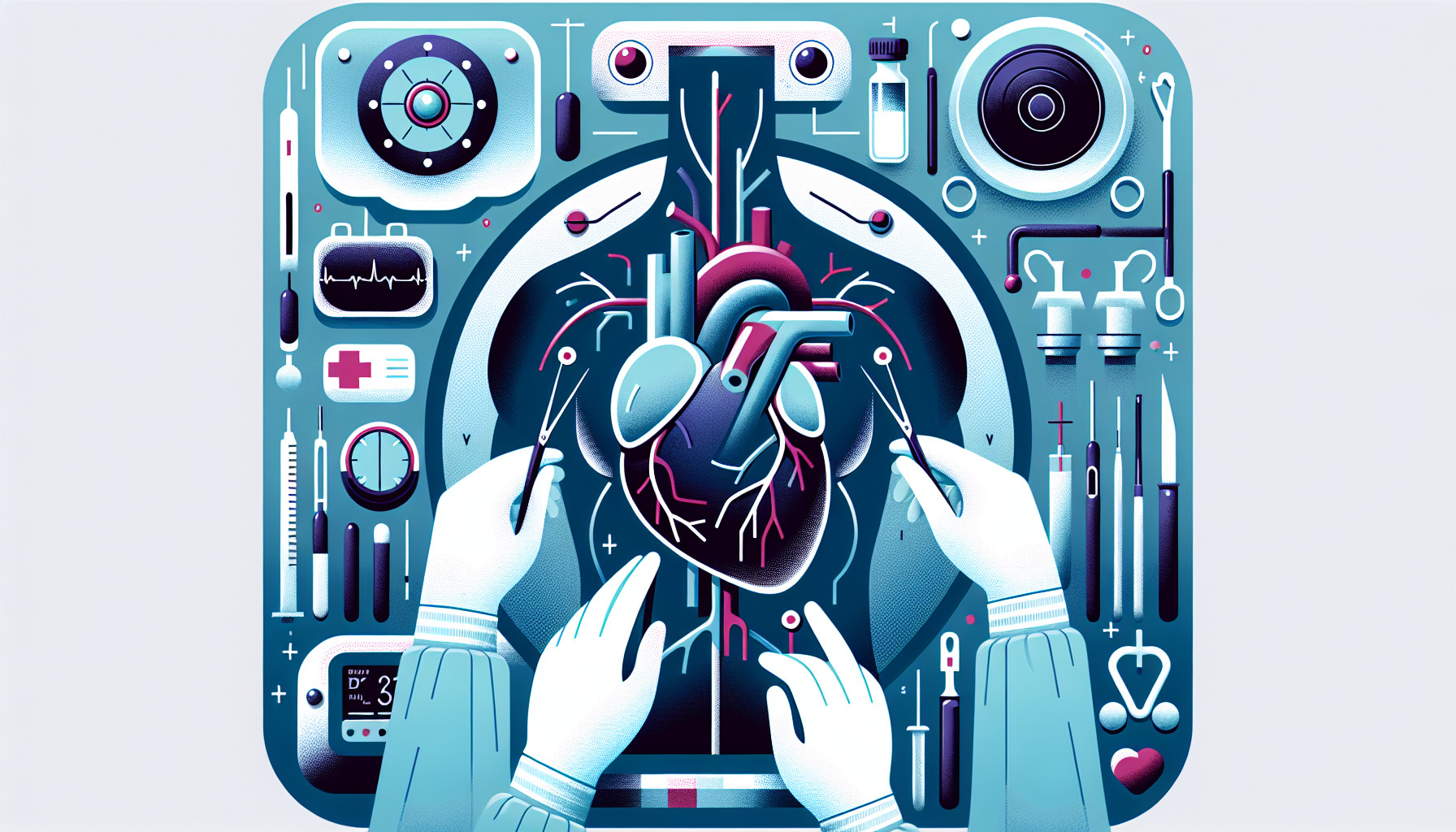Our Summary
This research paper looks at the best surgical approach for patients who have both cancer and heart disease. The study looked at eight patients who had both these conditions between 2011 and 2021. The patients were between 54 and 73 years old. Some of the patients had heart surgery and cancer surgery at different times, while others had both surgeries at once. Some of the heart surgeries were done with a heart-lung machine (on-pump), and others were done without it (off-pump).
The study found that on average, the patients needed about 2.6 grafts (new blood vessels) during their heart surgery. There were no deaths, heart attacks, or strokes while the patients were in the hospital. One patient had a lung infection after surgery, which was probably related to the chemotherapy and radiation he had before the heart surgery. The other seven patients did not have any major heart-related problems during the follow-up period.
In conclusion, the study suggests that for patients who have both cancer and severe heart disease, having both heart and cancer surgery, either at the same time or at different times, can be an effective treatment. The timing of the surgeries can depend on the stage of the patient’s cancer and their heart condition.
FAQs
- What was the main focus of this research paper?
- What were the key findings of this study regarding patients with both cancer and heart disease?
- How does the stage of cancer and the heart condition of a patient affect the timing of the surgeries?
Doctor’s Tip
A helpful tip a doctor might give to a patient about coronary artery bypass surgery is to follow a healthy lifestyle after the surgery. This includes maintaining a balanced diet, staying physically active, quitting smoking, and managing stress. These lifestyle changes can help improve the long-term success of the surgery and overall heart health. Additionally, it is important to attend regular follow-up appointments with your healthcare provider to monitor your progress and address any concerns.
Suitable For
Patients who are typically recommended for coronary artery bypass surgery are those who have severe coronary artery disease that cannot be managed effectively with medications or other less invasive treatments. These patients may have symptoms such as chest pain (angina) that significantly impact their quality of life, or they may have had a heart attack or other serious heart-related events.
Additionally, patients who have blockages in multiple coronary arteries, have left main coronary artery disease, or have disease in critical areas of the heart that are difficult to treat with other methods may also be recommended for coronary artery bypass surgery.
It is important for patients to undergo thorough evaluation by a cardiac surgeon and cardiologist to determine if coronary artery bypass surgery is the most appropriate treatment option for their specific condition. Additionally, factors such as the patient’s overall health, age, and other medical conditions will also be taken into consideration when determining if coronary artery bypass surgery is recommended.
Timeline
Before coronary artery bypass surgery:
- Patient undergoes diagnostic tests such as angiography to determine the extent of blockages in the coronary arteries.
- Patient may receive medications to manage symptoms such as chest pain and improve heart function.
- Patient may undergo lifestyle changes such as diet modifications, exercise, and smoking cessation to improve overall health.
- Patient may participate in cardiac rehabilitation programs to prepare for surgery.
During coronary artery bypass surgery:
- Patient is placed under general anesthesia.
- Surgeon makes an incision in the chest to access the heart.
- Surgeon harvests blood vessels from other parts of the body to use as grafts to bypass the blocked arteries.
- Surgeon creates new pathways for blood flow around the blockages in the coronary arteries.
- Patient is monitored closely during and after surgery for any complications.
After coronary artery bypass surgery:
- Patient is moved to the intensive care unit for monitoring and recovery.
- Patient may experience pain, swelling, and discomfort at the incision site.
- Patient undergoes physical therapy to regain strength and mobility.
- Patient is prescribed medications to prevent blood clots, manage pain, and control other symptoms.
- Patient participates in cardiac rehabilitation programs to improve heart health and prevent future complications.
- Patient follows up with healthcare providers regularly for monitoring and adjustments to treatment plans.
What to Ask Your Doctor
Some questions a patient should ask their doctor about coronary artery bypass surgery include:
- What is the best surgical approach for my specific case, considering that I also have cancer?
- How many grafts (new blood vessels) will be needed during the surgery?
- What are the potential risks and complications associated with coronary artery bypass surgery in my situation?
- Will I need to be on a heart-lung machine during the surgery (on-pump) or will it be done without it (off-pump)?
- How will my cancer treatment, such as chemotherapy and radiation, affect the outcome of the heart surgery?
- What is the expected recovery time and rehabilitation process after the surgery?
- What follow-up care will be needed after the surgery, especially considering my dual diagnosis of cancer and heart disease?
- Are there any lifestyle changes or medications that I will need to follow post-surgery to maintain heart health and prevent future complications?
- Are there any alternative treatment options or second opinions that I should consider before proceeding with the surgery?
Reference
Authors: Zhang MK, Zhang HW, Wu QY, Xue H, Fan LX. Journal: BMC Surg. 2022 Oct 13;22(1):359. doi: 10.1186/s12893-022-01805-7. PMID: 36229802
